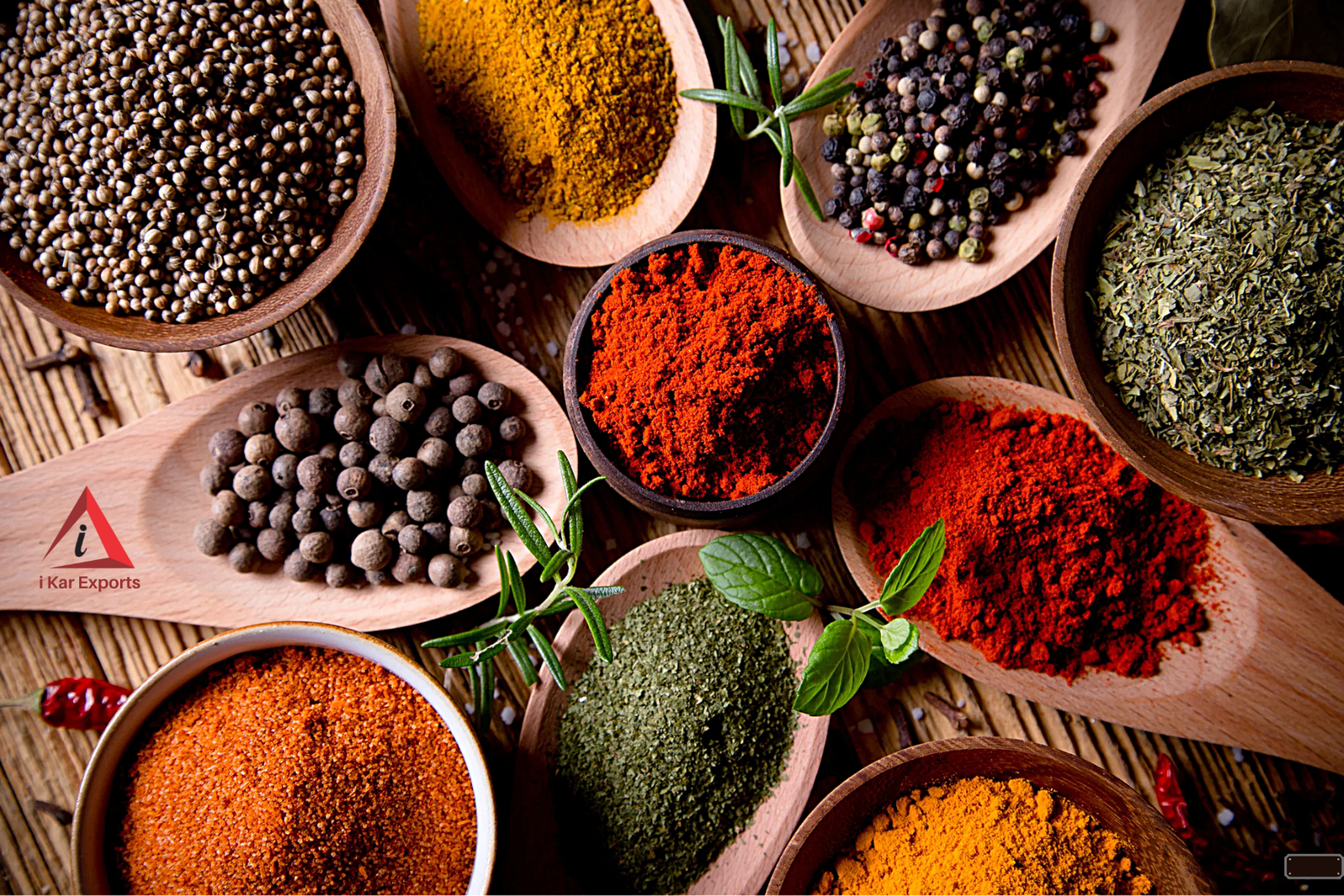Introduction
India is the world’s largest producer and exporter of spices, supplying over 200 countries with premium varieties like chilli, turmeric, cumin, coriander, pepper, sesame, and rice-based food products. Buyers across Europe, USA, Middle East, and Africa are increasingly seeking specific quality categories – such as IMP Quality (Import Grade), Organic Certified Quality, and Conventional/Commercial Export Quality.
For a Top Spices Exporter from India like I Kar Exports, understanding these categories is critical to delivering the right product to the right market. Let’s explore the meaning, benefits, key differences, and the best destinations for each type of quality.
What is IMP Quality in Spices?
IMP Quality (Import Quality or Imperial Grade) refers to spices that meet strict international trade standards for color, pungency, aroma, and cleanliness. These products are:
Machine-cleaned, polished, and uniform in size.
Often graded with ASTA color values, SHU pungency, and purity levels.
Ideal for large-scale bulk importers who prioritize consistency and compliance.
Benefits of IMP Quality:
High acceptance in bulk food processing industries.
Meets standard requirements for African, Middle East, and Asian markets.
Competitive pricing compared to Organic.
Where It’s Needed Most:
West Africa (Senegal, Gambia, Nigeria, Ghana) – demand for chilli, tamarind, millet.
Middle East (UAE, Saudi Arabia, Oman, Qatar) – demand for cumin, turmeric, coriander.
South & Southeast Asia – large-volume consumption in food industries.
What is Organic Quality in Spices?
Organic Quality Spices are produced under strict organic farming methods without synthetic pesticides, fertilizers, or chemical residues. Certified under standards like NOP (USDA), EU Organic, India Organic, and JAS Japan, organic spices cater to premium international buyers.
Benefits of Organic Quality:
Health-conscious and eco-friendly – free from harmful residues.
Higher nutritional value and stronger aroma.
Premium pricing with better margins for exporters.
Boosts brand image in competitive global markets.
Where It’s Needed Most:
Europe (Germany, France, UK, Netherlands, Italy) – highest demand for organic spices.
USA & Canada – booming health food and nutraceutical sectors.
Japan, South Korea – premium food and pharmaceutical usage.
Conventional / Commercial Quality
This is the regular grade of export-quality spices, which are cleaned and processed but not necessarily organic or top-graded IMP. They are widely used in household kitchens, restaurants, and low-to-mid range industrial applications.
Benefits of Conventional Quality:
Lower cost compared to Organic.
Flexible for bulk buyers in developing markets.
Used in daily cooking, curry powders, seasoning, and snack industries.
Where It’s Needed Most:
Africa – demand for chilli, turmeric, coriander in bulk.
Middle East & Asia – large populations driving daily spice use.
Latin America – growing demand for affordable Indian spices.
Key Differences Between IMP, Organic, and Conventional Quality
| Category | Definition / Standards | Benefits | Best Export Markets | Pricing Level |
|---|---|---|---|---|
| IMP Quality | Import/Imperial grade, ASTA & SHU based | High purity, consistent, industry-ready | Africa, Middle East, Asia | Medium |
| Organic Quality | Certified NOP/EU/JAS Organic, chemical-free | Premium, eco-friendly, high demand | Europe, USA, Japan, South Korea | High |
| Conventional Quality | Standard cleaned & processed spices | Affordable, widely accepted | Africa, Middle East, Latin America | Low-Medium |
Why This Matters for Top Spices Exporters from India
Exporters like I Kar Exports understand that not all buyers need the same quality level. A West African buyer may prioritize price & volume, whereas a European buyer will only accept organic certified shipments. By offering all three categories (IMP, Organic, and Conventional), Indian exporters can cater to a wide spectrum of customers globally.
Conclusion
The global spice trade is not just about flavor—it’s about quality differentiation, certifications, and trust.
IMP Quality is best for bulk imports where consistency and cost-effectiveness matter.
Organic Quality is preferred in markets where health, sustainability, and certifications are non-negotiable.
Conventional Quality bridges the gap by offering affordable yet reliable options for emerging economies.
As one of the Top Agricultural Food & Spices Exporters from India, I Kar Exports delivers all three quality levels with customized packing, global certifications, and reliable logistics. This adaptability ensures long-term partnerships and growing trust in international markets.


